
CRAIG CALHOUN is president of the Social Science Research Council, University Professor of the Social Sciences at New York University, and the founding director of the Institute for Public Knowledge. He is the author of several books, including Nations Matter: Culture, History, and the Cosmopolitan Dream and Neither Gods nor Emperors: Students and the Struggle for Democracy in China.
The University of Chicago Press, Chicago 60637
The University of Chicago Press, Ltd., London
2012 by The University of Chicago
All rights reserved. Published 2012.
Printed in the United States of America
21 20 19 18 17 16 15 14 13 12 1 2 3 4 5
ISBN-13: 978-0-226-09084-9 (cloth)
ISBN-13: 978-0-226-09086-3 (paper)
ISBN-13: 978-0-226-09087-0 (e-book)
ISBN-10: 0-226-09084-1 (cloth)
ISBN-10: 0-226-09086-8 (paper)
Library of Congress Cataloging-in-Publication Data
Calhoun, Craig J., 1952
The roots of radicalism : tradition, the public sphere, and early nineteenth-century social movements / Craig Calhoun.
p. cm.
Includes bibliographical references and index.
ISBN-13: 978-0-226-09084-9 (alk. paper)
ISBN-10: 0-226-09084-1 (alk. paper)
ISBN-13: 978-0-226-09086-3 (pbk. : alk. paper)
ISBN-10: 0-226-09086-8 (pbk. : alk. paper) 1. RadicalismHistory19th century. 2. Social movementsHistory19th century. 3. Social changeHistory19th century. I. Title.
HN49.R33C35 2012
303.48409034dc23
2011023624

This paper meets the requirements of ANSI/NISO Z39.48-1992 (Permanence of Paper).
THE ROOTS OF RADICALISM
Tradition, the Public Sphere, and
Early Nineteenth-Century Social Movements
CRAIG CALHOUN
THE UNIVERSITY OF CHICAGO PRESS
CHICAGO AND LONDON
P REFACE
I have been writing this book off and on for almost my whole adult life. I fear this may show more through inconsistencies of style than through accumulated wisdom, but, of course, I hope the key points are clear.
I started on this work while doing historical research on early nineteenth-century England, especially popular protest during the era of the Industrial Revolution. My understanding was expanded by inquiry into nineteenth-century France and the United States. But, though this book offers historical sociology informed by each of these casesmainly Englandit is not a full-fledged history of any of them, let alone an adequate comparison of the three. It is rather an attempt to discern patterns and themes in popular radicalism that have been obscured by dominant theories. Misunderstandings of history and limits of theory matter partly because they lead to faulty analyses today.
In particular, academic researchers, journalists, and simply citizens who consider themselves well informed have a hard time understanding populism, nationalism, and religious movements. Indeed, they are recurrently surprised by such movements and think them to be throwbacks to a past that was supposed to be vanishing. Dismissing participants as misguided or backward looking is hardly an analysis; trying to classify such movements on a Left-Right spectrum confuses much more than it clarifies. Both responses reveal as much about analysts social distance from the activists in these movements as about the actual political and social character of the movements.
The issue is not just that many analysts are tone-deaf to populist politics, though they are, nor even the element of class bias in elite interpretations of populism. It is also that populist politics often confound the conventional categories through which movements are understood. They are not fully explained on the basis of material interests, though both actual suffering and blocked aspirations often matter. To treat them as merely cultural movements would be to misunderstand how very material the significance of culture can be as it shapes not just ideals but solidarities and oppositions, strategic and tactical choices, understandings of economic circumstances and possibilities, tastes in leaders, or tolerance for setbacks. Similar issues arise in nationalist and religious politics. To try to analyze these movements as being either progressive or reactionary is equally problematic, not least because many bring pressures for social change precisely as they struggle to defend existing (or vanishing) ways of life. This is not the only paradox; the same ideological commitment and set of social institutions can be conservative most of the time and the basis for a deep political challenge when people feel threatened.
For better or worse, this is not a general study of populism and still less of nationalist and religious politics. It is an examination of the way political radicalism can be informed by tradition and sustained by community, of the way moral rhetoric can entwine with analysis of material interests, of the way the dominant public sphere was given shape by exclusion, and of the way this shaped projects for an alternative. These are themes that have mattered in social revolutions and national liberation struggles, as well as a wide variety of populist movements and struggles for social justice. Such mobilizations have been recurrent throughout the modern era and around the world. Indeed, politically consequent invocations of the category of the people may be among the defining characteristics of the modern era.
I do not claim that my much narrower empirical base in this book is representative. Rather, I argue that these movements from the early nineteenth century are both interesting in themselves and good places to see the limits of placing all politics on a Left-Right spectrum. Moreover, it is telling that both liberal and Marxist historical accounts commonly misrepresent these movements, even though they developed alongside them. The failure of conventional understanding goes back to roots in the early nineteenth century. Liberalism and Marxism both competed with less rationally systematic but more deeply rooted responses to social change and problematic exercise of political power.
I started the research that informs this book as new social movements challenged an older idea of the political Left. I am sending the book to the publisher as the political Right tries to claim a range of populist movements that are often more radical and unpredictable than conservative politicians want them to be. In each case, the attempt to squeeze politics into the frame of a Left-Right opposition is distorting. The range of identity and other concerns that shaped new social movements were not just reflections of ostensibly objective mutual interests, nor were they mere ideological distractions from them. Likewise, dismissal of todays populist and nationalist movements as merely right wing reflects a failure to consider why and how dominant patterns in social change may pose challenges for many people, and why in responding they think of themselves as representing the people. I hope the studies in this book encourage new thinking about movements that dont fit neatly into conventional categories.



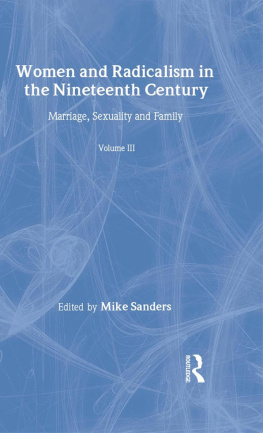

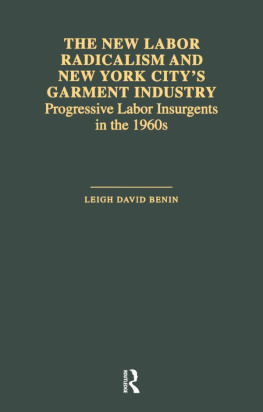
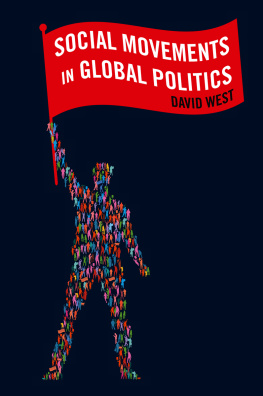

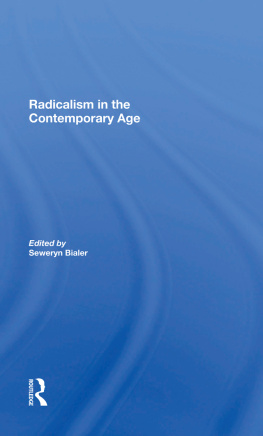
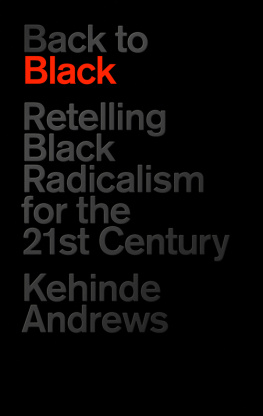


 This paper meets the requirements of ANSI/NISO Z39.48-1992 (Permanence of Paper).
This paper meets the requirements of ANSI/NISO Z39.48-1992 (Permanence of Paper).


